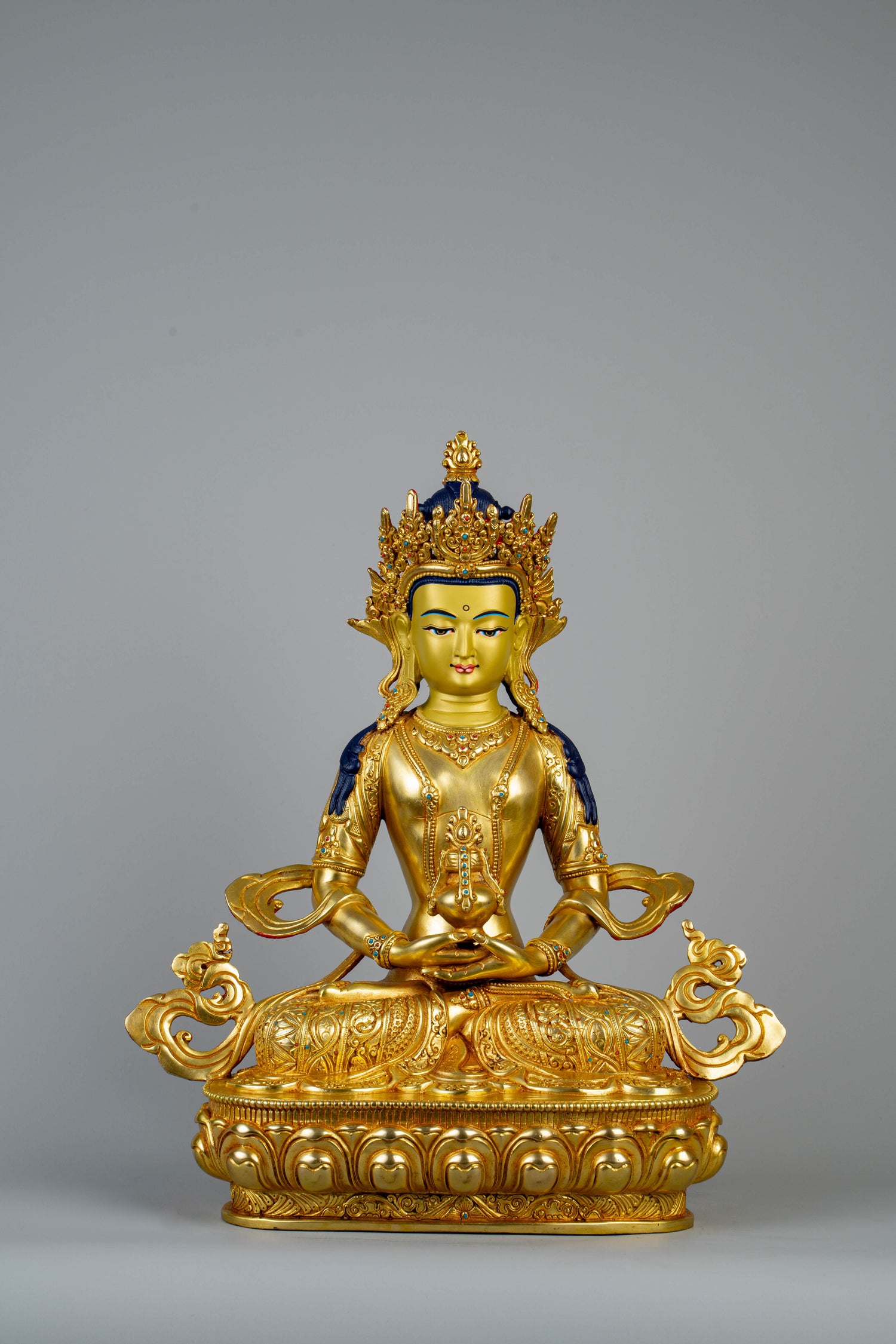
Amitayus: In the Light That Never Fades
Amitayus - ཚེ་དཔག་མེད་ - 無量壽如來
Amitāyus, known as the Buddha of Infinite Light, resides in the Western Realm of Paradise. According to texts, Shakyamuni Buddha referred to Amitāyus as the Buddha whose life and the life of the people of his land last for innumerable, unlimited, and incalculable kalpas. He further explained to Sariputra that the majestic glory of the light of Amitāyus could not be exhaustively described even if he were to praise it continually, day and night, for a period of one kalpa. Hence, he is given twelve different titles of the light.
Amitāyus is regarded as Sambhogkaya, a divine aspect of Amitabh Buddha, the Buddha of Inifinite Light. While Amitabh is regarded to be appearing in a form of Buddha, Amitayus appears in a form of Bodhisattva.
Iconography of Amitayus
The Monk Who Imagined a World Without Suffering
Before Amitāyus became a Buddha, he was just like you—a man who witnessed too much suffering. He was a king who walked away from power, wealth, and all the things people typically cling to. He became a monk named Dharmākara, and one day, he stood before Buddha—Lokeśvararāja—and expressed something simple, yet terrifying and beautiful:
“I want to create a world where no one is left behind.”
And so he sat. Not for an hour, not for a day, but for five kalpas—so long that the stars forgot him. He envisioned that world, vow by vow, making a total of forty-eight.
He imagined a land where sorrow never touched the air. In this world, no one was born from anger, hunger, or confusion. A place where the ground shone with jewel-paved paths, and every tree offered teachings instead of mere shade. Here, no animals suffered, hells did not scream, ghosts did not wander, and no being was born into a lower state again. The wind carried the sound of mantras, and the light served as a source of wisdom. And the people? They were bodhisattvas in full bloom.
This was Sukhāvatī, the Western Pure Land—not an escape from samsāra, but a perfect realm where awakening is effortless and Buddhahood is inevitable.
When he was ready, the universe trembled. Flowers rained down from heaven, and Dharmākara became Amitāyus, the Buddha of Boundless Life.
But here’s the secret:
He did not create Sukhāvatī to be merely admired; he built it to be entered. By you, by the dying, by those who ache in silence, and by anyone who, in their final moments, remembers him—even just once. He vowed that by reciting his name sincerely ten times, you would not fall.
He waits. Not impatiently, but eternally.
For his light is not just the light of life—it is the light that patiently awaits you, exactly as you are.
References
Inagaki, H. (1995). The Three Pure Land Sutras: The Larger Sutra on Amitāyus (The Sutra on the Buddha of Infinite Life) (Taishō Volume 12, Number 360).
Other forms of Amitayus
Commonly associated with
-
Example product title
Regular price $19.99Regular price -
Example product title
Regular price $19.99Regular price -
Example product title
Regular price $19.99Regular price -
Example product title
Regular price $19.99Regular price
